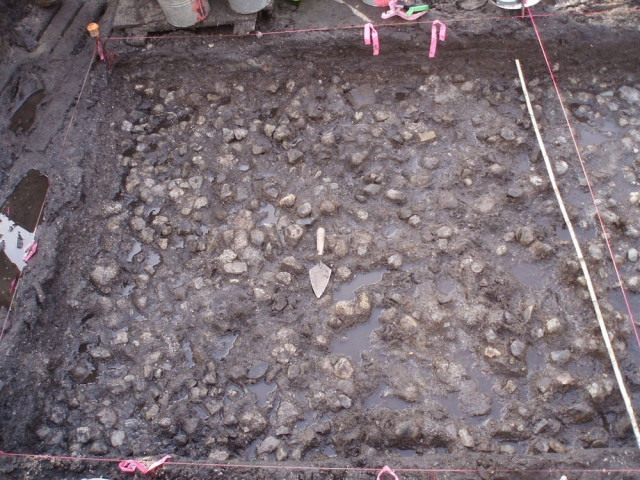3,800-year-old potato garden discovered in Canada
Excavated potato patch on is 'the first evidence' of gardening by local hunter-gatherers of the era

PHOTO COURTESY: Katzie Development Limited Partnership
The excavated potato patch on the ancestral lands of the Katzie tribe in British Columbia is "the first evidence" of gardening by local hunter-gatherers of the era, according to a study published in the journal Science Advances' December issue.
Archaeologists discover 2,500 year-old city in Greece
Archaeologists led by Tanja Hoffmann and Simon Fraser University concluded that the inhabitants of the Pacific Northwest had engineered the wetland to amplify production of the wild food plant.
They installed a rock pavement that "formed a boundary for the cultivation" of the potatoes, which were found in growing position.
Typically harvested from October to February, wapato was an important dietary source of starch through the winter months.
The archaeological excavation recovered 3,768 wapato tubers, also called Indian potatoes.


















COMMENTS
Comments are moderated and generally will be posted if they are on-topic and not abusive.
For more information, please see our Comments FAQ